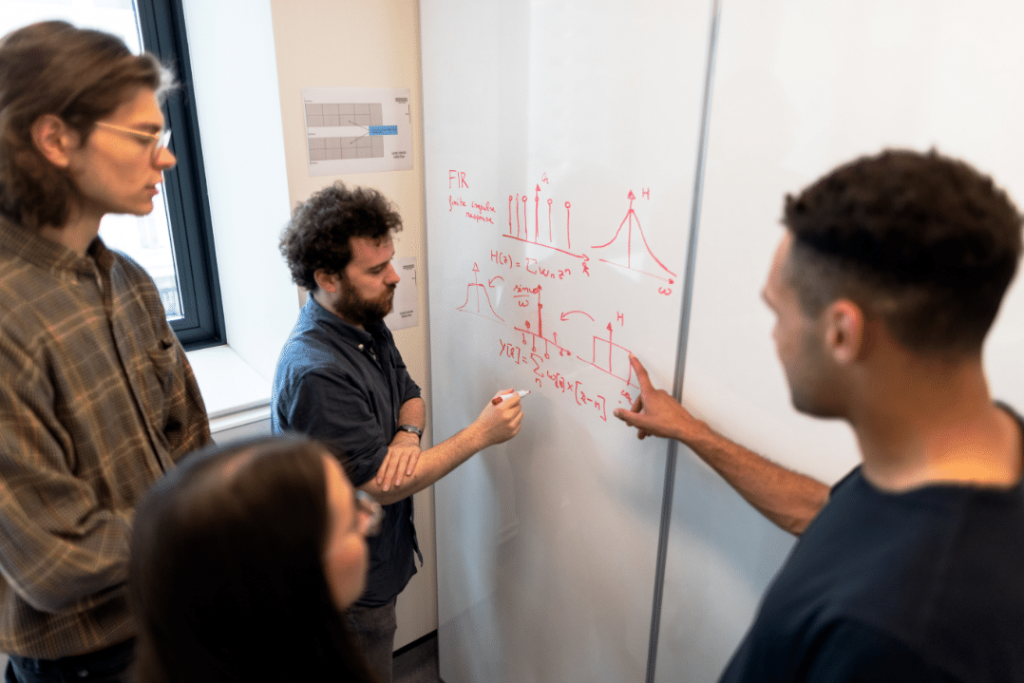Edition: July 15th, 2021
Curated by the Knowledge Team of ICS Career GPS

Excerpts from article by George Lawton, published on searchbusinessanalytics.techtarget.com
When interviewing for a job, data scientists need to consider how to showcase both their technical acumen and soft skills to potential employers.
Data science interview prep should start by considering the following:
- The target company
- The kinds of questions they might ask
- How to highlight your appropriate strengths.
It is essential to understand the role and what is expected of data scientists before the interviewing process begins.
Vivek Ravisankar, CEO at HackerRank
Key data science skills
Maintaining clean, extensive data sets is the biggest challenge in many data science projects.
Sachin Gupta, CEO of HackerEarth, recommends data scientists review their strengths in four key skills: programming, statistics and probability, machine learning and data analysis. Interviewers will commonly ask questions on these topics, such as the following:
- Programming: Given an array of unsorted random numbers (decimals) find the interquartile distance.
- Statistics and Probability: Say you roll three dice, one by one. What is the probability that you obtain three numbers in a strictly increasing order?
- Machine Learning: Let’s say you have a categorical variable with thousands of distinct values. How would you encode it?
- Data Analysis: Given a table on user actions, write a query to get the active user retention by month.
Potential data scientists should also consider refining their soft skills since data scientists are required to work cross-functionally across organisations and must know how to communicate with their colleagues.
What to do before the interview?
Spend time understanding your potential employer.
Magda Klimkiewicz, an HR business partner at Bold LLC, recommends checking the About Us page and reading up on the prospective company on Glassdoor before the interview. Be sure to read through the organisation’s core values, vision and mission statements. “If you can prove to employers you understand their business and their coding needs, they’ll throw job offers at your feet,” she said.
You should also look at specific questions you might be expected to answer in preparation of the technical screening process. Jen Hsin, head of data science at SetSail, suggests reading through the job description to identify which data scientist profile the hiring team is looking for. Some of the possible profiles may include:
- Statistician/Researcher: Roles and responsibilities might mention A/B experiments, hypothesis testing, user studies, etc. You might get asked about experiment design, sample size estimate, confidence interval calculation, etc.
- ML Scientist: Roles and responsibilities might mention building machine learning models to solve a business problem or enhance product features.
- NLP or Computer Vision Specialist: Roles and responsibilities might specifically mention text or image processing experience. In this case, familiarity with modern deep learning methods is a must.
During the interview
Get into the habit of finding out more about the company during the screening round. Here are some good questions to ask during the initial phone screen:
- What is the timeline for filling the role? Is the position new or backfilled?
- What does the interview process entail?
- What is your preferred communication style for follow-up and status updates?
Also, think about what skills to highlight.
Sean Downes, Ph.D. director at the Pasayten Institute, recommends brainstorming the kinds of problems that the organisation might face and charting out possible concrete problems with concrete solutions. For example, a social networking company might be seeking ways to curate the best clusters on a graph.
The technical round
For the technical interview, it’s good to brush up on your ability to write complex SQL queries and prepare for simple data processing-oriented coding exercises that involve writing a script.
Rudy Zen, head of product at Fast AF Inc.
These exercises are meant to mirror the technical skills needed for a day in the life of a data scientist.
Paul Bilodeau, CEO and co-founder of Filtered.ai, recommends finding people that work at the company you are interviewing for on LinkedIn. Then, take a look at what they have listed as the projects they’re working on and the current tools they’re working with.
You might also want to explore what they are posting on Twitter and GitHub, which can help you know what topic you want to review.
It’s also worth considering the kinds of problems the interviewer might be working on. For example:
- If you are interviewing for a position that skews toward data analysis, know the difference between basic distributions cold, and know what they’re used for.
- If you’re interviewing for a position that skews toward machine learning, be prepared to explain what models you’ve used and be prepared to talk about problems with deployment.
…
(Disclaimer: The opinions expressed in the article mentioned above are those of the author(s). They do not purport to reflect the opinions or views of ICS Career GPS or its staff.)



